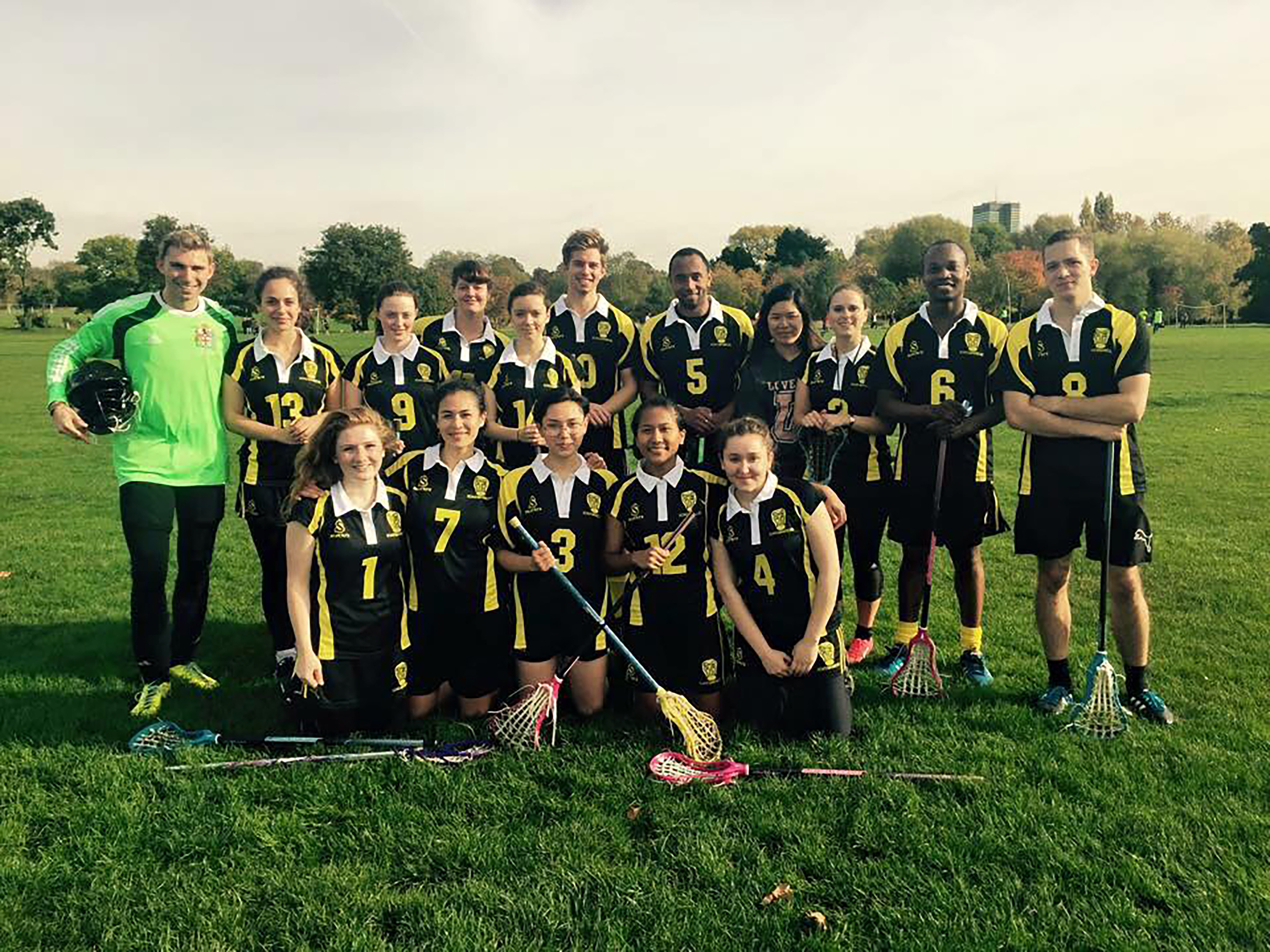Mel Plant, BA Arabic and Turkish
‘Sports doesn’t have to be aggressive, boisterous and alcohol-fueled like it is at every other uni,’ says Reiss Palmer, captain of SOAS’ first lacrosse team, ‘people forget we’re SOAS students too.’ Palmer met with The SOAS Spirit last week to talk about the changing image of sports within SOAS and the recent successes of his team.
When Palmer first came to SOAS, there were far fewer choices for students looking to get involved in sport. ‘If you wanted to do [a sport] and we didn’t have it, you just went elsewhere,’ he commented. Last year, returning after his year abroad, Palmer decided to join the UCL mixed lacrosse team as a change from the usual choice between rugby or football at SOAS.
He says he had a ‘great, great year’ playing with the UCL lacrosse team, where, despite its 200-strong membership, he found a ‘sense of community’ outside his course. Playing in the mixed team allowed him to escape the extremely ‘physical and violent’ men’s team, but the size of the team meant Palmer was unable to make it into fixtures. This inspired the foundation of SOAS’ first lacrosse team last year.
Alongside SOAS’ volleyball team, lacrosse is the only other mixed competitive sport at SOAS. When asked why he started a mixed team, Palmer responded that not only are mixed teams a more social community, but also that he feared that wouldn’t be able to recruit enough members for a single-gender team. Sticking with the mixed format he had experienced at UCL was his only hope of forming a team which could enter a league and play fixtures alongside other universities.
In fact, ‘the exact opposite happened,’ and Palmer started the year with enough new recruits to field almost 2 teams. Despite ‘70 to 80%’ of these new team members having no experience playing lacrosse, the team has only lost once within the space of a year. Having won 7 matches and drawn another, SOAS’ lacrosse team holds second place within the London Universities Sports League (a sub-division of British Universities College and Sport, or BUCS).
 LSE’s prolific lacrosse team holds first place in the league, with 21 points against SOAS’ 13 and a heft goal difference of 67 (with SOAS’ sitting at 4). SOAS’ lacrosse team will play against LSE’s once again on the 28th of February, and Palmer is hoping for a ‘draw or a win,’ with a win being ‘highly optimistic.’
LSE’s prolific lacrosse team holds first place in the league, with 21 points against SOAS’ 13 and a heft goal difference of 67 (with SOAS’ sitting at 4). SOAS’ lacrosse team will play against LSE’s once again on the 28th of February, and Palmer is hoping for a ‘draw or a win,’ with a win being ‘highly optimistic.’
The SOAS Spirit asked for a comment on the state of funding for SOAS sports societies, given that at the start of this academic year, the sports budget was cut by £3,000. The decision to cut the budget came from the Students’ Union executive after the revelation that missed fixtures have cost the Union £3,000 in fines over the past year.
While most universities have access to university-owned sports pitches, therefore escaping the costs of booking pitches for practice, SOAS lacks such facilities. Palmer commented that while it would be fantastic if SOAS students had access to such facilities, the ownership or hire of such facilities would simply be ‘too expensive’ for the university. Cheaper facilities can only be found further afield, in which case the cost of travel would be incurred by students. Improving sports facilities is ‘impractical’ at SOAS, said Palmer.
However, improving the relationship between sports societies and the wider student body is something that is not impractical to change, in Palmer’s opinion. When he set up the lacrosse team last year, Palmer said he ‘knew what [he] wanted to do with the lacrosse team and with SOAS sports’ in general. Together with this year’s Sports Officer Lizzie Wright (the first to take this position within the Students’ Union Executive), sports captains from SOAS teams have met, holding events together and creating a more cohesive community through which students like Wright and Palmer hope to make other SOAS student ‘more aware’ of the inclusivity of sports at the university.
As SOAS sports societies become noticeably more integrated within the wider SOAS community, Palmer hopes that more teams will be set up by students and different sports, such as dodgeball and sprinting, will be explored.
Palmer feels that the Students’ Union together with sports societies has this year been able to form ‘more of a community,’ where students don’t feel ‘embarrassed to say they play sports.’ It’s doubtless that other universities have a more prominent sporting community than our own, and the awareness of the ‘macho’ or misogynistic atmosphere of other sports teams across the country has pervaded SOAS’ students’ opinions of sports within our own community.
The fear of sports teams as a misogynistic, hostile environment was compounded in the last academic year by the LSE rugby team controversy. However, Palmer insists that sports at SOAS is an entirely different community. ‘We’re not going to go out and be misogynistic,’ he says, ‘[yet] we’ll organise a party that is the same as any other society’s, call it ‘Sports Night,’ and people think it will be [misogynistic].’ After all, ‘we’re taught the opposite here.’
Image: Reiss Palmer